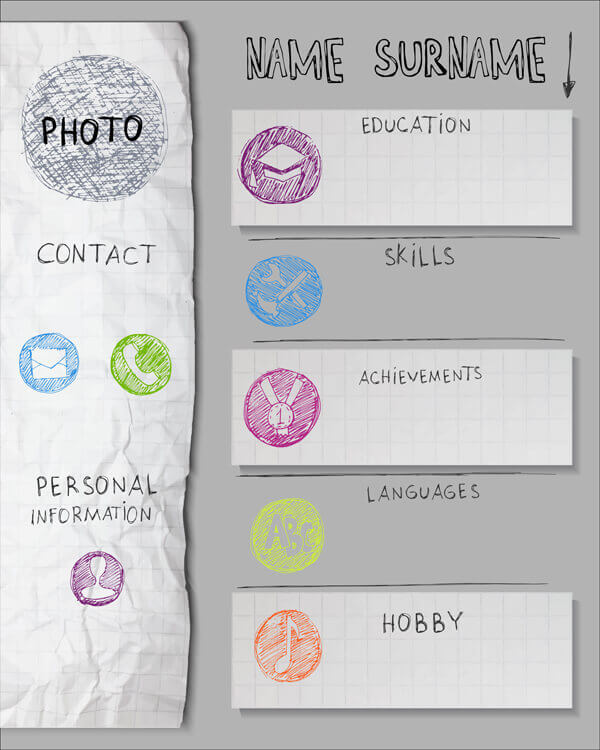It's now time to actually create your resume. And you are ready to do just that.
Look over the sample resumes are all based on what I have seen in real resumes. The names, addresses and other details have been changed, of course.

Some of the sample resumes break some of the "rules" but are included anyway. There is, after all, no "perfect" resume. Nor is there just one way to write them. Each person is different, and each resume will, likewise, have its own personality.
For each sample resume, I have written notes about the person behind the resume. This will help you to understand why that resume was done in the way it was done.
And since some of them have "flaws" of various kinds (or at least things that might have been done differently), I have added notes about these-as well as the things I liked.
I hope this approach helps you. Look over the examples carefully and jot down ideas you want to consider for your own resume.
At the end, after all the sample resumes, is a thorough resume worksheet. Complete it carefully and it (and the rest of the information) will give you all of the information you will need to write your own resume. It is that simple.
When you are done with the worksheet, use the checklist at the end to help you avoid common resume mistakes. Pay attention to the various final tips for "writing your resume to get results.
You're On Your Way
If you've followed the hints given here, you're well on your way to having a resume that will not only be read, but also admired.
People who will be reading, and screening, your resume may or may not be resume experts themselves. In fact, they may know little about resumes. They may even be reading groups of resumes for the first time.
But even those who are new at the job know what they like to read. If you've followed my advice so far, that's what you're giving them.
You will learn about another important element of the job search, letters. They're more important than most job seekers think.
Writing resumes isn't exactly fun for most of us. And when we're done, we don't look forward to writing a letter to accompany the resume. We'd rather not write for awhile.
But sometimes the cover letter is even more important than the resume itself.
